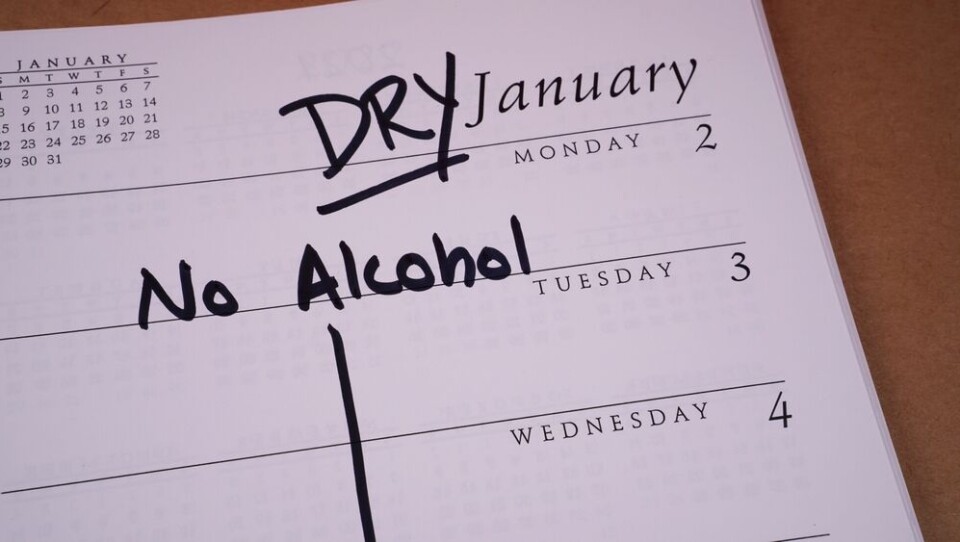-
Dordogne and Corrèze on alert for flooding on Easter Sunday and Monday
Persistent rain and thunderstorms have caused rivers to swell
-
Roadside noise cameras await approval to start issuing fines for loud vehicles in France
The devices known as meduses already exist in several cities but so far have only been ‘instructional’
-
White storks make strong return in France via nest ‘platforms’ and clipped wings
The Ligue pour la Protection des Oiseaux shares the conservation challenges in saving these birds from extinction
French government petitioned to support Dry January
Addiction experts claim the wine lobby is stifling measures against alcoholism

French addiction experts have written an open letter to the Health Minister imploring him to encourage people to observe Dry January, following a string of aborted measures to combat alcoholism.
The 48 addiction experts say that Dry January, the month-long challenge to avoid alcohol in January, has proved its benefits “in the UK in particular”.
Known as Le Défi de Janvier in France, Dry January was created in the UK by Alcohol Concern (now Alcohol Change UK) in 2012.
The month of abstinence has grown steadily in popularity in the UK: where 4,000 people observed it in 2012, 130,000 did so in 2022.
In large part, the movement’s success has been spurred on by the support of Public Health England, which declared its backing for the movement in 2015.
However, in France the movement has not received any public backing from the health authorities.
Indeed, much to the consternation of addiction experts, the French government has at times discouraged the movement.
Le Monde reported that in 2019 the wine industry lobbied against Dry January, sending letters to MPs, senators and ministers vaunting the “French art de vivre”.
“I am very much opposed to a January without wine,” then-Minister of Agriculture Didier Guillaume told RTL in 2019. “I find the idea outrageous. I much prefer the idea of moderation throughout the year to prohibition for one month.”
That year, 8,491 people in France registered to observe the month on the Dry January app, compared to 82,000 in the UK.
Despite pressure from addiction experts, the government and the Ministry of Health have stalled on anti-alcohol measures.
Indeed, the Ministry recently withdrew its support for two recent anti-alcohol campaigns under pressure from the wine lobby, according to investigations by Radio France and Le Canard Enchainé.
The government also backed down on a new alcohol tax that was supposedly in consideration for the 2024 budget
Read more: Addiction experts criticise plans not to raise alcohol tax in France
President Macron is reportedly a keen wine drinker, winning several blind tests at the Paris International Agricultural Show in 2018.
"I drink wine at lunchtime and in the evening," he said at the show, adding that under his presidency, there would be no tightening of France's alcohol-regulating Evin Law.
‘A breakdown of trust’
In the letter to Health Minister Aurélien Rousseau published on December 11, the 48 addiction experts say that their trust in the public health authorities is failing.
“While we are not looking to assign responsibility, it seems that people’s trust in the government’s ability to hold a coherent stance [against alcoholism] is seriously compromised,” the letter begins.
“To restore this trust, there need to be clear engagements, both in terms of content and their symbolic value.
“Support for the social movement known in France as ‘Le Défi de Janvier’ seems to us to be a perfect opportunity for this.”
‘A voluntary, positive movement’
“This is a positive movement that allows individuals as part of a collective moment to question their role that alcohol plays in their lives.
“It is a social movement that is entirely voluntary and neither normative nor moralising.
“For the Ministry of Health and Prevention to stay on the sidelines would be regrettable.”
Dry January France says that among the many benefits of avoiding alcohol, 71% of participants sleep better, 88% save money, and 80% learn to control their alcohol consumption better long term.
Only 33% of people in France currently say they would consider observing Dry January.
The Ministry of Health has yet to respond to the letter.
Read more:
What does a winemaker in France actually do all day?
Addiction experts criticise plans not to raise alcohol tax in France
























